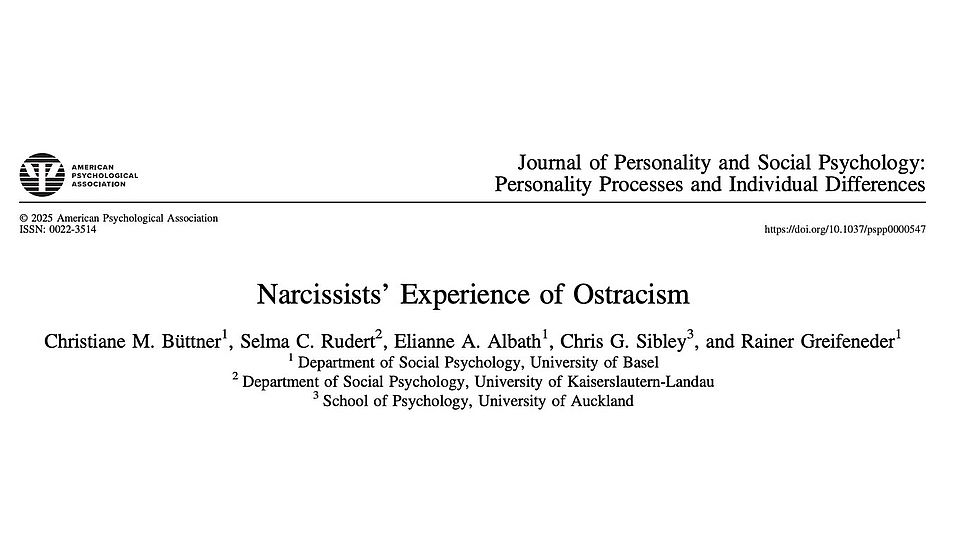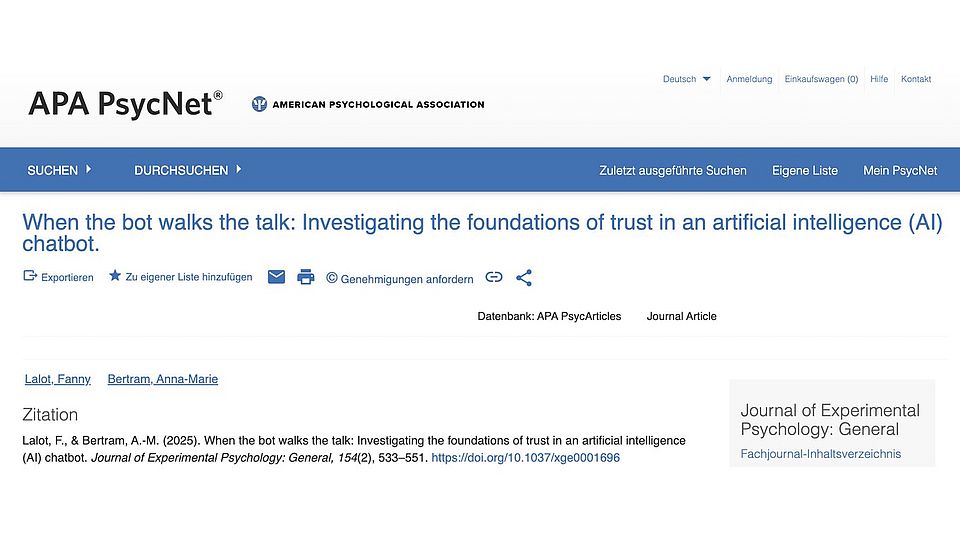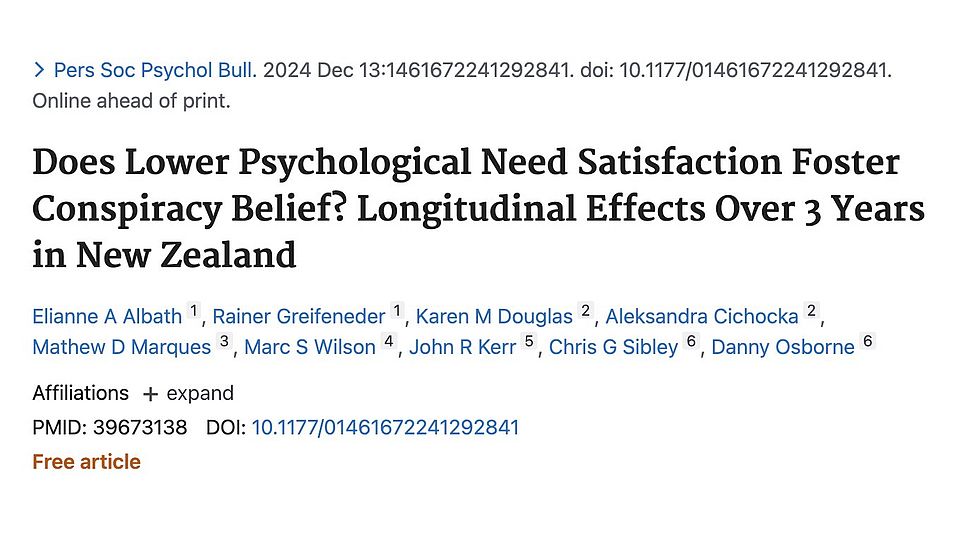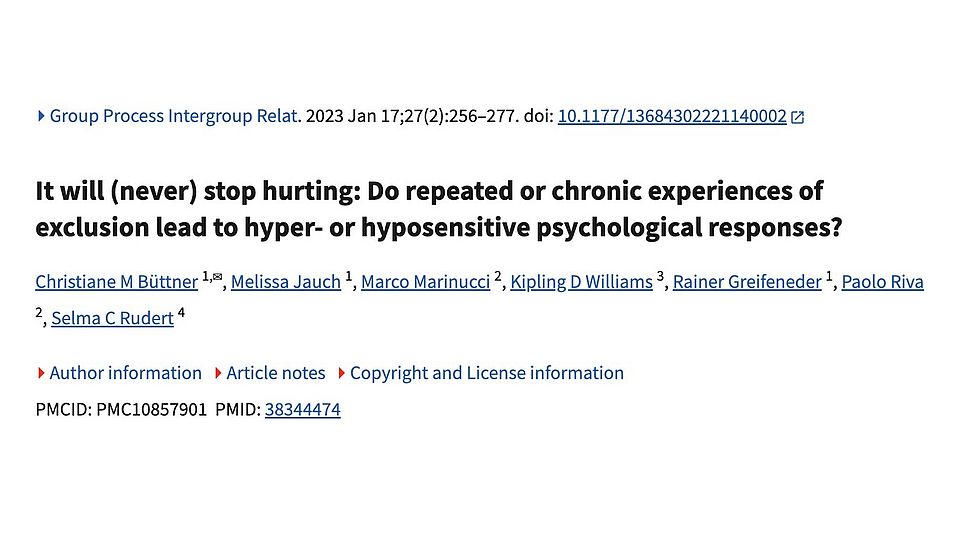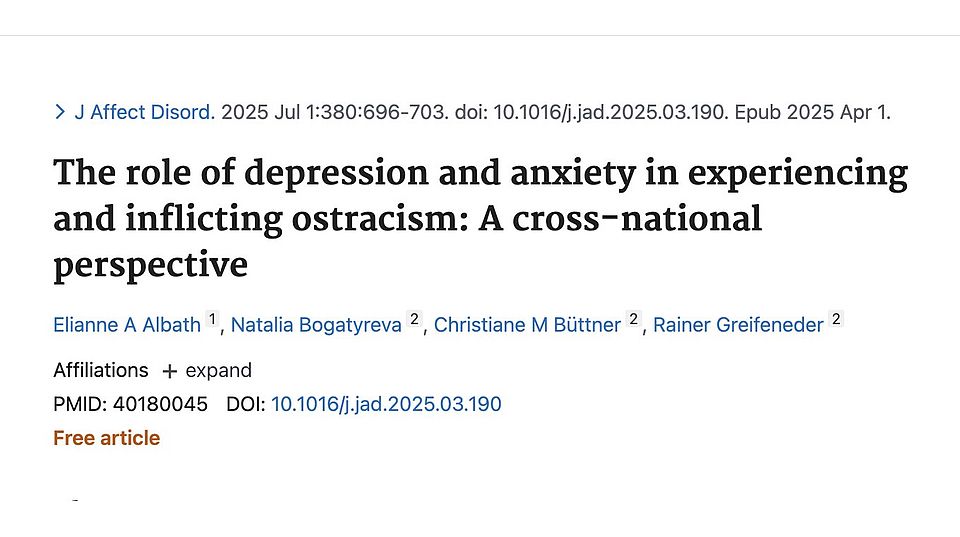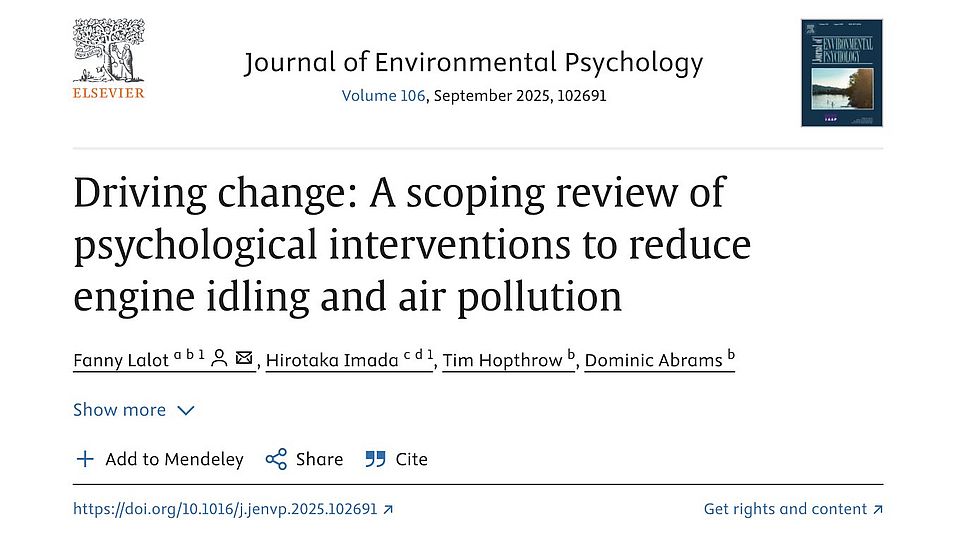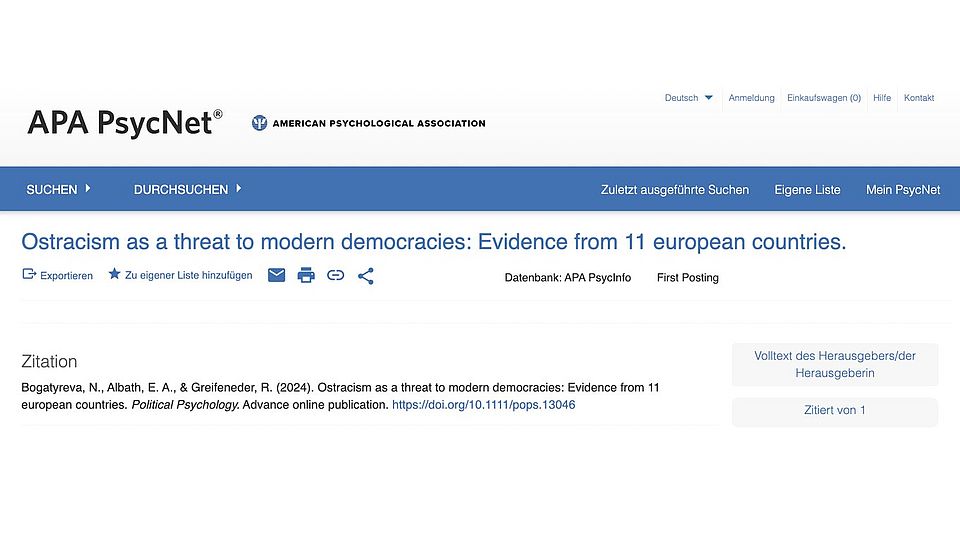Research at the Center for Social Psychology
Our research is characterized by a strong social-cognitive, empirical-quantitative approach. We are interested in fundamental processes of human experience and social interaction as well as in applied questions of high societal relevance. Our research relies on state-of-the-art methodology, including experimental laboratory research, longitudinal surveys in panel studies, and experience sampling. Our research is published in the best international journals of social psychology and neighboring fields. Our contributions reflect the teamwork that we cultivate with colleagues in Basel as well as nationally and internationally, within psychology and across disciplines. Our research would not be possible without the generous support of the Swiss National Science Foundation and the University of Basel, for which we are very grateful. Please find below a selection of findings that allows peeking into our research program:
Social exclusion
Being socially excluded – that is being left out or ignored by others – is a painful experience for people and can have tremendous consequences for their well-being and mental health. Social exclusion can occur unintentionally, as a means of punishment, as a result of conformity to a group, or for various other reasons. It becomes visible on the interpersonal level, for instance when a person is left out by their peers, but also on a societal level, for instance when certain groups are not considered to the same extent as others.
The research at the Center for Social Psychology focuses on different aspects of social exclusion experiences, for instance:
Can people adjust to the negative impact of social exclusion, in that the experience becomes less painful when they expect to be socially excluded or make the experience repeatedly?
- Büttner, C., Jauch, M., Marinucci, M., Williams, K. D., Greifeneder, R., Riva, P., & Rudert, S. (2022). It will (never) stop hurting: Do repeated or chronic experiences of exclusion lead to hyper- or hyposensitive psychological responses? Group Processes & Intergroup Relations, 22-097.https://doi.org/10.1177/13684302221140002
- Jauch, M., Büttner, C. M., Rudert, S. C., & Greifeneder, R. (2022). Expecting exclusion: Does bracing for the worst buffer the pain of social exclusion. European Journal of Social Psychology, 53(4), 746-765.https://doi.org/10.1002/ejsp.2934
Another line of research concerns who is most at risk of experiencing exclusion more frequently, for instance, groups like unemployed individuals, sexual minorities, or those who face negative consequences from policy decisions, but also, who is at risk of reacting more negatively to social exclusion, for instance, depressed individuals.
- Albath, E. A., Büttner, C. M., Rudert, S. C., Sibley, C. G., & Greifeneder, R. (2023). Young, unemployed, excluded: Unemployed young adults experience more ostracism. European Journal of Social Psychology. Advance online publication. https://doi.org/10.1002/ejsp.2953
- Büttner, C. M., Rudert, S. C., & Greifeneder, R. (2021). Depressed and excluded: Do depressive symptoms moderate recovery from ostracism?. Journal of Affective Disorders, 294, 730-736. https://doi.org/10.1016/j.jad.2021.07.075
- Büttner, C. M., Rudert, S. C., & Kachel, S. (2024). Ostracism Experiences of Sexual Minorities: Investigating Targets’ Experiences and Perceptions by Others. Personality and Social Psychology Bulletin, 0(0). https://doi.org/10.1177/01461672241240675
- Jauch, M., Büttner, C. M., Albath, E. A., & Greifeneder, R. (2023). Unvaccinated and left out: The mismatch of vaccine supply and demand during COVID‐19 as a source of interpersonal and societal exclusion. Analyses of Social Issues and Public Policy. https://doi.org/10.1111/asap.12360
Individuals may not only experience exclusion in offline social interactions, but also in the digital realm. This line of research investigates when people feel excluded online, and how they react to such experiences:
- Büttner, C. M., & Rudert, S. C. (2022). Why didn’t you tag me?!: Social exclusion from Instagram posts hurts, especially those with a high need to belong. Computers in Human Behavior, 127, 107062. https://doi.org/10.1016/j.chb.2021.107062
- Lutz, S., Büttner, C. M., Neumann, D. (2023). A window to what we miss: Effects of self- versus other-exclusion on social media users' fundamental needs, discrete emotions, and online coping behaviors. Media Psychology. Advance Online Publication. https://doi.org/10.1080/15213269.2023.2242769
Finally, we aim to understand social exclusion also from the point of view of those who decide to ostracize:
- Rudert, S. C., Möring, J. R. N., Kenntemich, C., & Büttner, C. M. (2023). When and why we ostracize others: Motivated social exclusion in group contexts. Journal of Personality and Social Psychology. Advance online publication. https://doi.org/10.1037/pspi0000423
Building and restoring trust
Trust is a crucial aspect in all forms of relationships. It determines the satisfaction of partners in a love relationship, the willingness of customers to buy from a company, the voting decisions of citizens and the extent to which they support their government.
The research at the Center for Social Psychology focuses on different aspects of trust, for instance:
How does political trust fluctuate in times of crisis, and what are the implications for collective and individual behavior? How do experiences of ‘political betrayal’ damage trust in political actors and institutions?
- Lalot, F., Abrams, D., Heering, M. S., Babaian, J., Ozkececi, H., Peitz, L., Davies Hayon, K., & Broadwood, J. (2022). Distrustful Complacency and the COVID-19 Vaccine: How Concern and Political Trust Interact to Affect Vaccine Hesitancy. Political Psychology, 44(5), 983-1011. https://doi.org/10.1111/pops.12871
What types of betrayal do people experience in daily-life, and what are the implications for trust?
- Lalot, F. (2023). The unkindest cut of all: A quantitative study of betrayal narratives. Journal of Community and Applied Social Psychology. https://doi.org/10.1002/casp.2738
Current lines of research also investigate the role of vulnerability in trust decisions, as feeling vulnerable is a necessary condition for trust. How we can measure this concept and which vulnerabilities play the most important role are the main research questions in this area.
Future thinking and pro-environmental behavior
People differ in how they think about and plan for the future. Research at the Center for Social Psychology has contributed to developing a novel construct that captures such interindividual differences. “Futures Consciousness” represents people's ability to understand, anticipate, and prepare for the future, and consists in the complex intertwining of time perspective, agency beliefs, openness to alternatives, systems thinking, and concern for others. In previous work, we have shown that people with higher Futures Consciousness were more engaged and better able to cope during the COVID-19 pandemic. We have also found that people with higher Futures Consciousness care more about the environment and engage in more environmentally friendly behavior, a line of research we are currently investigating further. Most recently we validated an adapted version of the Futures Consciousness scale for adolescents, which opens new lines of research into how young people engage towards the future.
- Lalot, F., Ahvenharju, S., & Bishop, P. C. (2024). The seeds of tomorrow: Investigating adolescent perception of the future with the Futures Consciousness scale for adolescents. Futures, 162, 103419. https://doi.org/10.1016/j.futures.2024.103419
- Lalot, F., Ahvenharju, S., & Uusitalo, O. (2024). Green dreams are made of this: Futures consciousness and proenvironmental engagement. British Journal of Social Psychology, Early View access. https://doi.org/10.1111/bjso.12799
Fake News and Truth Judgments
In the context of fake news, alternative facts, and post truth politics, it is important to understand how individuals decide about truth or falsehood. We investigate judgments of truth and analyze how the presentation and phrasing of the information impacts judgments. Furthermore, we test how features of the judging individuals play a key role in truth judgments.
The research at the Center for Social Psychology focuses on different aspects of truth perceptions, for instance:
- Greifeneder, R., Jaffé, M. E., Newman, E. J., & Schwarz, N. (Eds.). (2020). The psychology of fake news: Accepting, sharing, and correcting misinformation. London: Routledge.
- Jaffé, M. E., & Greifeneder, R. (2019). Less than I expected and oh so true? On the interplay between expectations and framing effects in judgments of truth. Journal of Language and Social Psychology. doi.org/10.1177/0261927X19869392
Publications
Please see here for the Center's publications.

